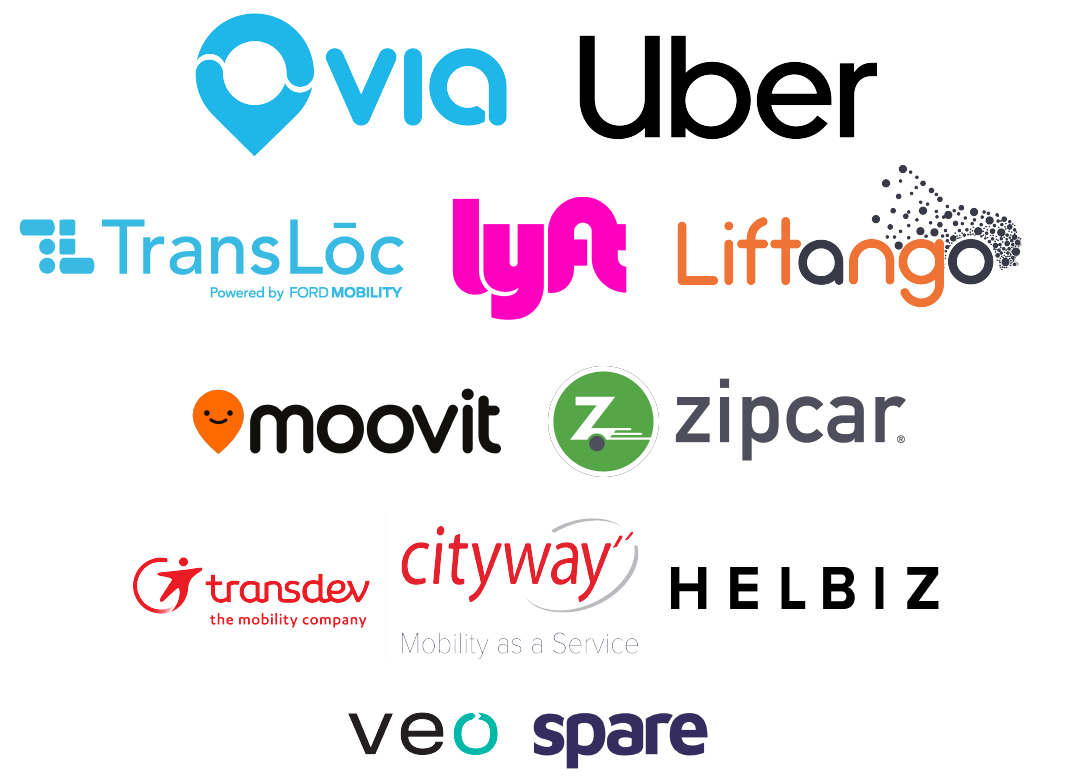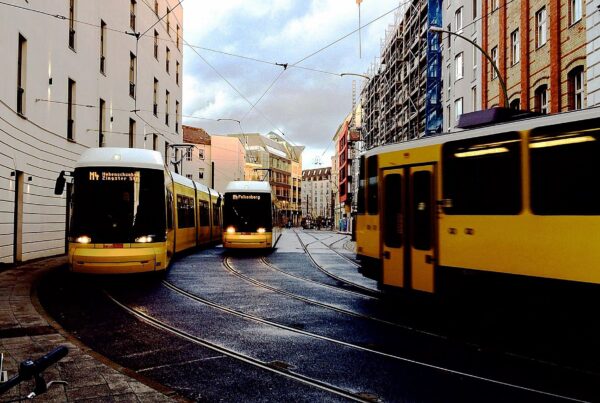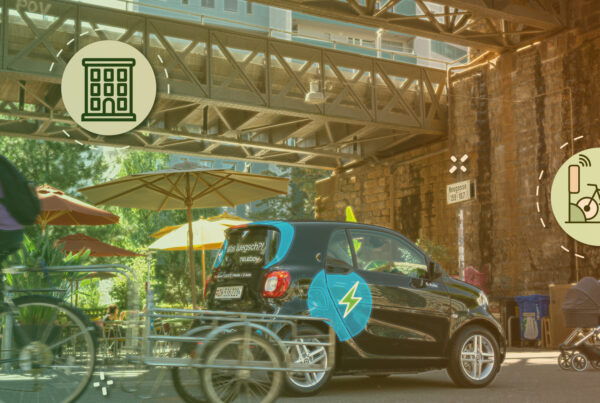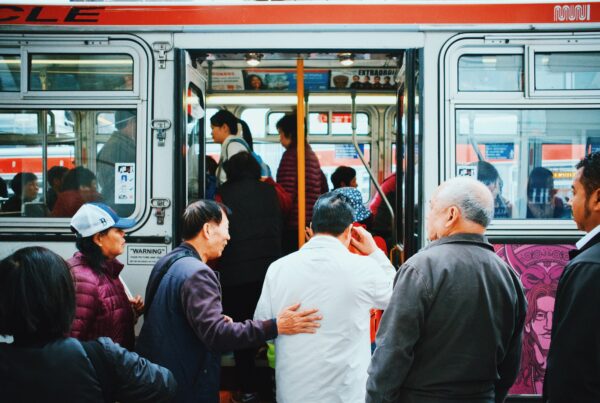The Mobility Hub
Your weekly guide to the latest in shared mobility
SUMC News and Announcements
2022 Summit Program & Speaker roster is growing!
Interested in sponsorship? Let us know!
Have you seen the themes for the 2022 National Shared Mobility Summit? At this year’s Summit, we’ll map out the shared mobility ecosystem, explore what we’re learning from innovative AV shuttle (shared) services, and discuss how to bring clean mobility options to all (especially in underserved areas). Check out the nine themes on our 2022 Summit Program page and join us on May 17 & 18 in Chicago. Don’t miss out on limited early bird tickets!
Featured Panel: Turning Research into Behavior Change
What does it take for TNC passengers to choose shared rides instead of solo products? What are riders’ biggest barriers to Mobility on Demand adoption? This session will showcase the latest shared mobility research followed by a discussion on how to use data to change behaviors towards more equitable and sustainable travel. Learn about this topic straight from experts, FHWA Senior Policy Analyst, Allen Greenberg and Vice President of Innovative Mobility and Emerging Technology at ITS America, Nicole DuPuis.
Reimagine Mobility: The Go Hub & North Lawndale Field Trip
We aren’t stopping at provocative panels! Explore Chicago’s west side and join a walking tour, co-hosted by our friends at Equiticity, that shares the rich cultural history and future of North Lawndale. Learn about the community’s work to battle inequities for black, brown, and indigenous people in transportation and beyond. Register today and add the trip to your #SUMC2022 experience.
Summit Partners
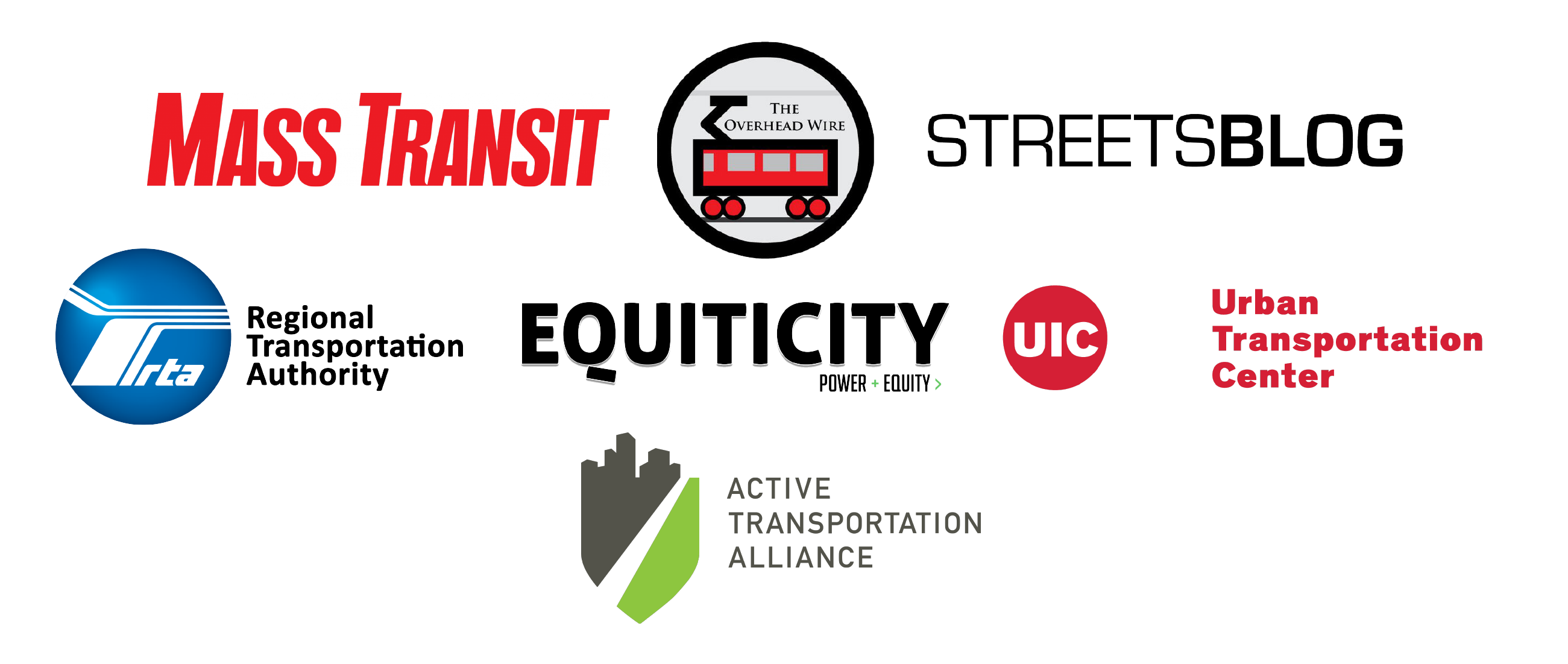
New overviews in our Mobility Learning Center
It’s the last month of February and much has happened in the shared mobility world recently. Head to the Mobility Learning Center and read about an electric carshare project in the Twin Cities, the new Curb Data Specification, and fare capping in New York City!
Don’t miss experts from the Transportation Technical Assistance Coordination Library (TACL) task force host the Twitter Chat #Every1OnTheBus, co-moderated by the National Center for Applied Transit Technology (N-CATT), SUMC, and the National RTAP, on April 12 at 1:00-2:00 PM CT. Let’s work to overcome barriers to transit, use technology to improve ridership, and build user (and non-user) feedback to get everyone (back) on the bus.
Recommended reading: Shared Mobility and Automated Vehicles
In a new book by Ata M. Khan (Carleton University, Ottawa) and Susan A. Shaheen (UC Berkeley, California), they examine the socio-technical factors in urban mobility as it shifts towards more shared (and in some cases autonomous) models and what role that plays in regulatory, environmental, technological, and social systems. Learn more.
Mobility Justice
After the Biden administration excluded race from a screening tool identifying communities historically affected by climate injustice, the Deep South Center for Environmental Justice asked, “How can the White House address environmental racism without addressing race?”
A Chicago neighborhood group is proving that decriminalizing mental health and transportation can go hand-in-hand with its Mobile Mental Health program, offering support to youth and preventing hospitalizations.
How do we build cities better for people? Let’s start with equitable and sustainable planning—learn more and share ideas about shifting to people-first urban spaces at Urban Shift’s interactive webinar.
As millions of people are displaced by climate change each year, our attention must turn to migrant justice. To aid the fight, we need to address the climate crisis—beginning with transportation (the largest GHG contributor in the US) and shared mobility to protect our shared home.
Ridehailing/Carsharing/Carpooling
As Uber and Lyft move into the non-emergency medical transportation business, some worry the burden of safety and care that healthcare requires is not being addressed. For a flexible model of travel to work, the needed skills and training must be provided for drivers.
The classic yellow taxi is getting a makeover (and hopefully a revival) with L.A. City Council’s approved ordinance to modernize taxis that includes an overhaul of the city-regulated franchise system.
First- and last-mile solutions are arriving in Atlanta for MARTA riders with a new multimodal rideshare service launching March 1.
And MARTA can be encouraged by the success of DART On Demand that launched in November in Des Moines and has received positive feedback. Riders have options—they can schedule trips in real-time or for a future time, and they can book trips online or through customer service.
Bikesharing & Micromobility
Whether you love or hate the Idaho stop, we can all agree that U.S. cities should have citywide networks of connected, protected bikeways. Learn about biking etiquette and more by listening to Streetsblog’s conversation with Eben Weiss, NYC’s biking culture blogger.
We know helmets work, but helmets laws often lead to discriminatory enforcement against people of color and people experiencing homelessness, which is why Seattle officials overturned decades-old regulation.
San Francisco could start eyeing a publicly-owned bikeshare system after a new report laid out potential options, although the city would have to overcome a couple of hurdles first.
Starting a short-trip scooter revolution could be as simple as implementing in-app encouragement. At least 60% of Bolt users went for a scooter instead of ridehailing with the motivation.
Transit
Your next bus trip in Chicago might be electric with the CTA’s new goal to hit full electrification for its bus fleet by 2040—including 14 new EV buses expected on the road before the end of this year.
DC’s WMATA has seen ridership drop significantly since the pandemic and can’t seem to reorganize operations (or recover from derailment blunders) to bounce back. How can the agency rebound from recent shortfalls?
Madison, WI’s Metro Transit’s draft plan would tighten up its system with more frequent service on busy corridors, as part of a new redesign, but is it at the cost of citywide coverage that’ll leave many low-income areas with long walks to the closest stop?
It takes multifaceted initiatives for better safety, reliability, and access in public transportation, especially for people historically left out of the process. McKinsey & Company looks at global examples and how to inclusively accommodate “end-to-end needs”.
Technology
Technology (and how we interact with it) informs how communities benefit from the evolution and growth of our cities, so Bryan Boyer, the founding director of the University of Michigan Urban Technology program, believes it’s time we cultivate intermediaries for this digital-physical fusion.
Want to learn about ways urban technology in local delivery can lead to inclusive futures? Read Bryan Boyer’s co-authored report The Most Important Mile and check out this SUMC webinar on the report’s findings.
With $5 billion to start, a lot of electric vehicle charging infrastructure will be built. States are required to have a plan before they get any of that money, and 23 states have one. Expect states “to collaborate much more closely with the private sector, data analysts and each other as they each play their part in building out a national electric vehicle charging infrastructure network.”
Bloomberg takes an inside look at Waymo’s autonomous vehicle depot in San Francisco, fitted with self-driving Jaguar EVs zipping around and one of the biggest charging spots in the city.
Sustainability
Paris is once again making inroads to reclaiming space from cars with a new “quiet zone” (completion by 2024). The zone, covering four districts and part of the Seine river’s Left Bank, will limit through traffic in the heart of the city.
The Rounds is a Philadelphia-based delivery startup that takes sustainable delivery seriously through reusable packaging and e-bike delivery workers. Now, after success in DC, it’s expanding to its third city: Miami.
Students from the nation’s top universities like Yale and MIT weren’t going to wait around for these institutions to slowly divest from fossil fuels, so they filed legal complaints with help from the Climate Defense Project to put on the pressure.
Fayetteville, Arkansas eliminated minimum parking requirements citywide to ease costs for local development, and critics thought a parking crunch and ruined home values would follow. Instead, renovated restaurants, mixed-use housing, and business growth ensued.
Project Funding Opportunities
RFP: Equity Consultant
CALSTART
California
Deadline: March 11
RFP: Palm Tran Connection Paratransit Services
County of Palm Beach
Palm Beach County, Fl
Deadline: March 18
2022 AARP Community Challenge
Learn how to apply for a quick-action grant and make your community sustainable, equitable and accessible and all-around enjoyable for everyone. The deadline is March 22.
RFP: Paratransit Scheduling and Dispatch Software
Tri-Valley Transit
Northern Vermont
Deadline: March 24
Senior City Planner
Denver Department of Transportation and Infrastructure (DOTI)
Denver, CO
Populus is hiring! Check out the multiple open positions on their Careers page.
Have a story for us? Let us know.



